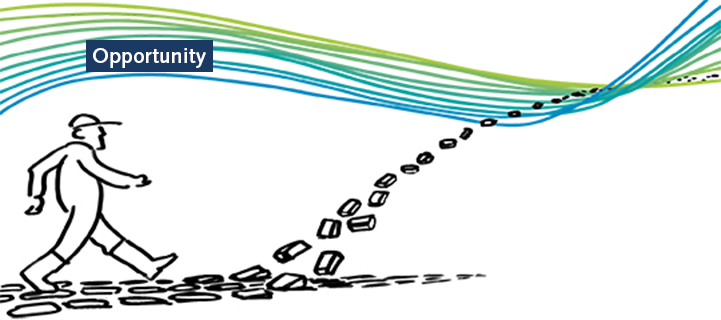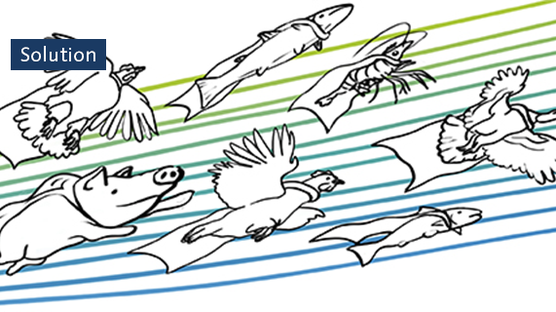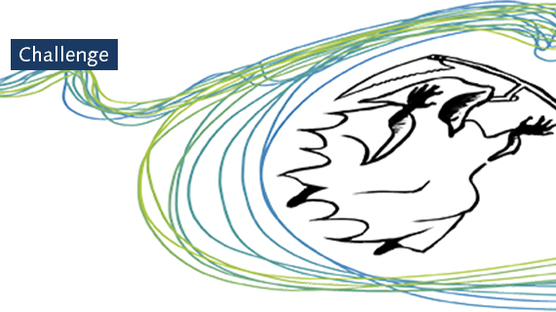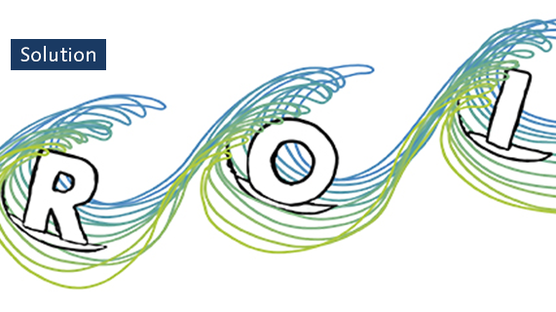
Published on May 1, 2021
Benefitting from future proof sustainability standards
Hendrix Genetics focuses on new standards and opportunities in order to increase the welfare and livelihood of people and animals alike.
We all know perfectly well that our global population is growing and that the current method of feeding the planet is inefficient, at best. Our planet doesn’t grow, and therefore the use of our resources should become more efficient, effective and food must be widely available to end hunger. People have become more and more anxious about who to blame and what the next steps should be. Is that an all plant-based diet? Can animal protein still be a part of our diet? How big should that part be?
If we want to be part of the solution, we should work on social acceptance too. Because how can we improve on economic and environmental aspects, if most people choose their diets based on an incomplete truth? We truly believe that animal protein is a player in the diet of the future. But we need to address and improve on welfare and the livelihood of people and animals alike.
Social sustainability standards within Hendrix Genetics
With ‘social sustainability’ we focus on the welfare and livelihood of people and animals alike.
As welfare should improve for all, we envision opportunities to incorporate into our breeding goals.
To us, the start is with balanced. Nature thrives when things are in balance. Issues with a lack of balance in animal protein production are still noticeable throughout the world, within the industry and even in our own field of expertise. As we collaborate with many partners and people around the world, we see regions that struggle with diseases, available resources or husbandry and housing challenges. With our global team and specialized local experts, we tailor our animals towards new standards that tackle these challenges better and better each new generation to come.
Sustainable follows immediately after. People, animals and the planet should benefit all. Our aim is to increase high-quality protein, decrease waste and poor welfare standards, while using resources wisely so that everything stays in balance.
It sounds simple, but when people experience hunger, welfare of animals or the importance of the environment becomes a lower priority. Or when people have more income to spare on their food, waste seems to be less of an issue. How can we progress on all matters at the same time? To achieve all this and more, we need to collaborate throughout the world. Collaboration with partners in- and outside the industry, governments, our customers, and the average consumer is part of the solution.
Putting our best foot forward
We can monitor closely, listen, make evidence-based decisions bridging the information gap between what we know and see as experts in the field and what most consumers seem to think. We all want a healthy, friendly, safe environment, while reducing stress, and increase survival for all. With truly understanding the needs of animals, people, and the planet, we can support and improve life in the broadest sense.
Improving on animals’ livelihood, think of: having an improved resilience, upgrading animal welfare, showing social behavior, reducing stress, waste and mortality, tackle husbandry and housing challenges.
Improving on peoples’ livelihood, think of: optimizing supply and demand, increase food safety, being fed and provided for, welfare and capturing value, and reducing waste.
Improving on environmental challenges, think of: making sustainable diets choices, efforts to stop climate change, making sure to use resources wisely now and in the future, creating a circular economy, control the spread of diseases and antimicrobial resistance, providing solutions for the exponential population growth, reducing our footprint.
How can an animal genetics company be part of a sustainable future?
For us, as an industry player, we can calculate sentiment with social media, be transparent and educate others on best practices and industry standards. We believe taking part in a global dialogue will set new standards, making the animal protein industry more sustainable, as we can solve current and future challenges together.
We want to address the duality in certain aspects. Which standards do we value higher as a society? Which steps do we need to take first? What is social sustainability to you?
Current industry challenges and innovations addressed
There are certain welfare-related practices that are already being addressed. Teeth and tail clipping, beak trimming, and the culling of male chicks, just to name a few. But, new technology and sensor-based data and management show good results in eliminating the need for these treatments altogether. We support different housing systems to research the best outcome for a more sustainable future. The machinery to spot male or female outcome in eggs are improving and the discussion on ethics plays a big part in speeding up or slowing down new ideas, areas of research or opportunities.
We want to engage with a broader public to be able to monitor closely, listen, and make evidence-based decisions. Bridging the information gap between what we know and see as experts in the field and what most consumers seem to think. Why? Because we know nobody can work on sustainability alone. Together we go faster towards a more sustainable and socially-conscious environment.
What are your thoughts on our social sustainability stories?
If there is a topic you would like us to cover, please submit it via the button below.
You've read an opportunity article. Interested in the solution or challenge?
Do you want to explore all articles?



